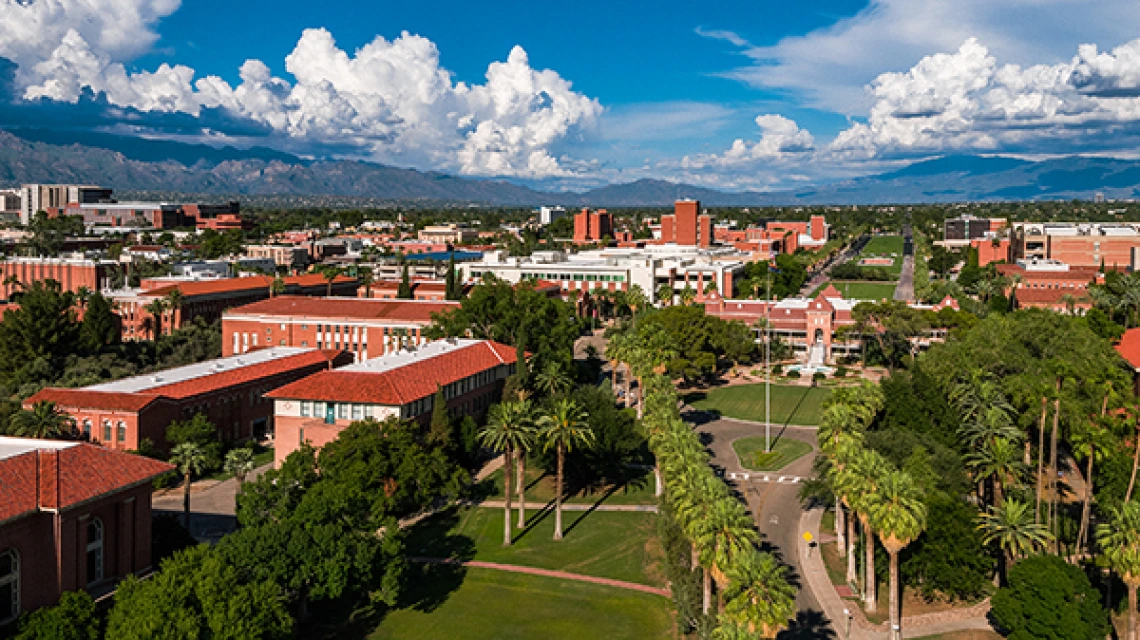Tech Launch Arizona to bring UArizona expertise in translational research to NSF grant awardee universities
Through the Accelerating Research Translation (ART) program TLA will mentor the University of Southern Mississippi in developing a more impactful innovation ecosystem.

The U.S. National Science Foundation has announced the first-ever Accelerating Research Translation (ART) investment — more than $100 million to 18 teams at academic institutions across the nation. NSF's investment will enable academic institutions to accelerate the pace and scale of translational research that will grow the nation's economy. As a core element of the program, each team awarded is paired with a university that already has a proven successful research translation program.
Tech Launch Arizona (TLA), the office of the University of Arizona with over a decade of successful activity and impact in moving university inventions into the marketplace and a member of the NSF I-Corps Hub: Desert and Pacific Region, will serve as the mentoring institution for the University of Southern Mississippi (USM), which is working in partnership with Jackson State University (JSU).
“A little over 10 years ago, our university had translational research activities similar to USM. Since then TLA has worked with thousands of inventions, created over 130 companies, and generated economic output in the billions,” says Doug Hockstad, TLA Associate Vice President. “We’re excited to be able to bring our experience and lessons learned in evaluating current gaps in innovation capabilities and help others develop innovation roadmaps to overcome their unique challenges.”
Each ART awardee will receive up to $6 million over four years to identify and build upon academic research with the potential for technology transfer and societal and economic impacts, to ensure the availability of staff with technology transfer expertise, and to support the education and training of entrepreneurial faculty and students. Through its partnership with TLA, USM will benefit from the lessons learned from Arizona’s experience creating a more robust ecosystem for translational research. A strong partnership between the awardee institution and a mentoring institution with an established translational research ecosystem is one of the unique features of the ART program.
“USM is an active partner in Mississippi’s growing knowledge-based economy,” says, Brian Cuevas, Ph.D.; Director of the Office of Innovation Management at USM. "This award will not only support the development of innovation programs, but also fund seed translational research projects demonstrating the university’s capabilities to translate its research into technology-based startups.”
JSU, a fellow Mississippi Research Consortium member along with USM, as well as a member of the NSF’s Mid-South I-Corps Hub, will assist USM in establishing entrepreneurial training programs that facilitate the transformation of USM inventions from the lab to market.
“Jackson State University is pleased to partner with USM on this significant project to accelerate research translation. Our efforts to create a strategic partnership around innovation, entrepreneurship, technology transfer, and commercialization bode well for our institutions' research agenda and the growth of emerging technologies," says Almesha Campbell, Ph.D.; Assistant Vice President for Research at JSU.
"NSF endeavors to empower academic institutions to build the pathways and structures needed to speed and scale their research into products and services that benefit the nation," said NSF Director Sethuraman Panchanathan. "The Accelerating Research Translation program in NSF’s new Technology, Innovation, and Partnerships (TIP) Directorate identifies, and champions institutions positioned to expand their research translation capacity by investing in activities essential to move results to practice."
Launched by NSF's TIP Directorate, the ART program directly addresses a long-standing gap between academic research and the products, services, and solutions Americans need. While ART seeks to build capacity and infrastructure for translational research at U.S. institutions of higher education, the program also aims to enhance the role of institutions of higher education in regional innovation ecosystems and effectively train graduate students and postdoctoral researchers in translational research, benefiting them across a range of career options. The program is authorized by the "CHIPS and Science Act of 2022." For more information, visit the ART program webpage.

